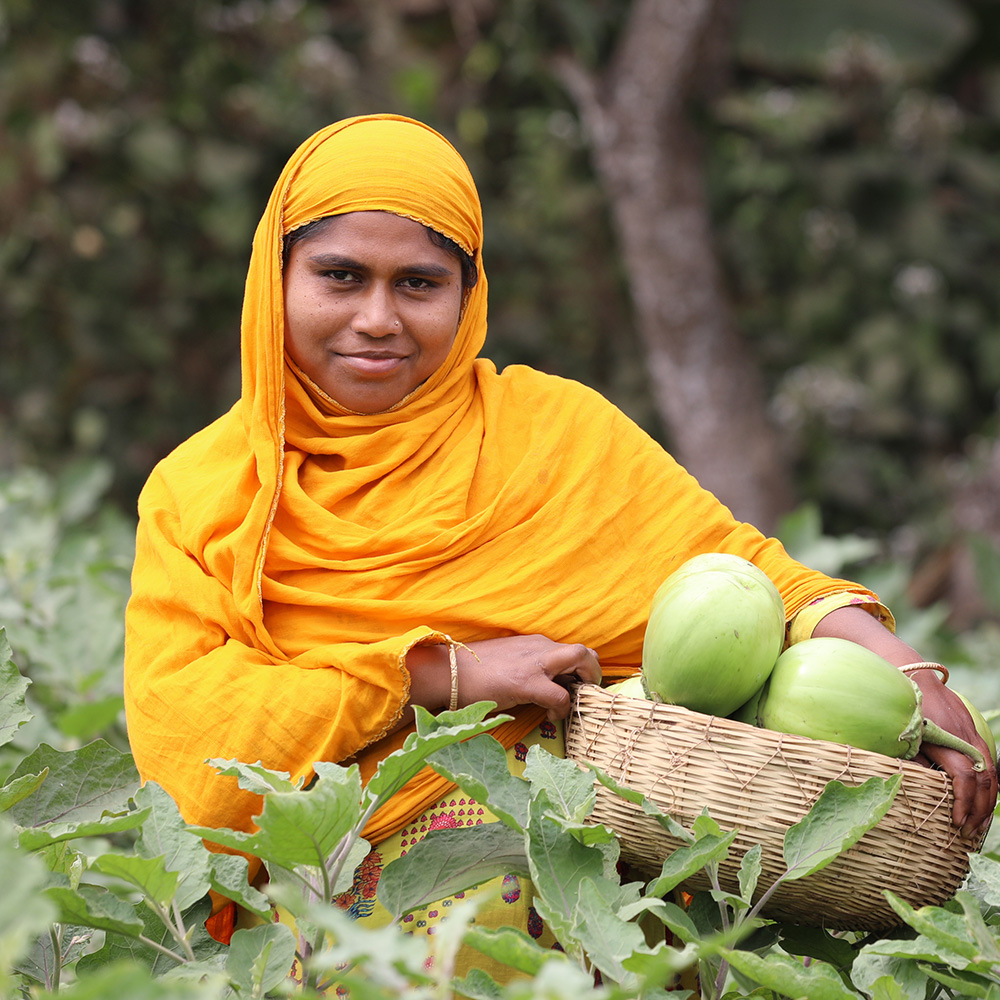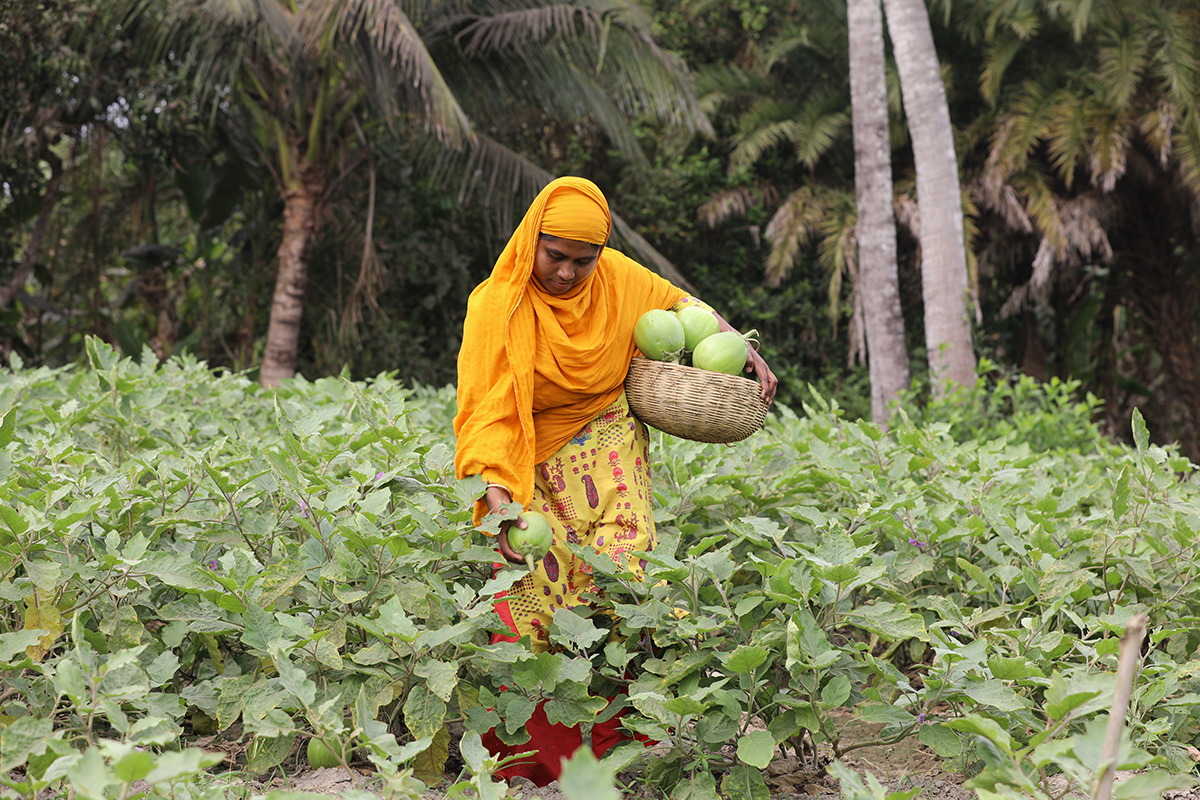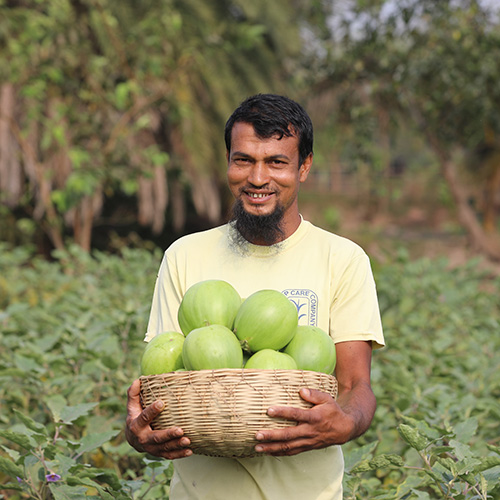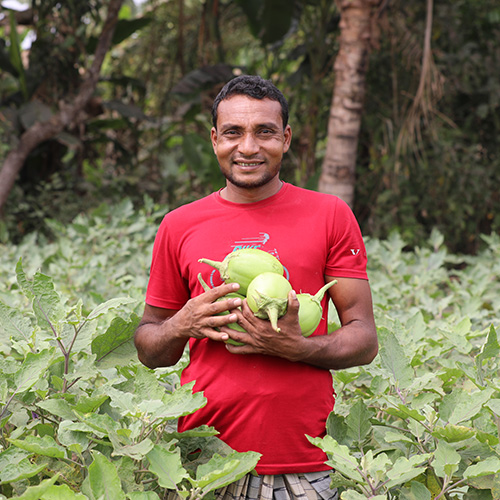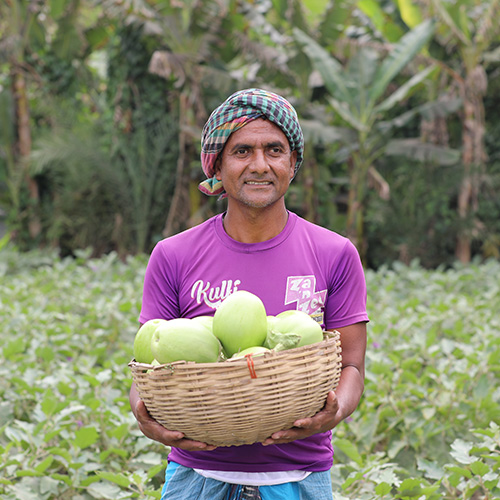Sabrina Afrin’s decision to grow Bt eggplant was more than just a farming choice; it was the first step toward realizing her long-held dreams for her family. What began as a small, cautious venture blossomed into a transformative journey that has redefined her life.
A few years ago, Sabrina and her family were struggling to make ends meet in their village in Koyra, in southern Bangladesh. Their small, thatched-roof home lacked an indoor kitchen and bathroom, and even buying clothes for the children was sometimes a struggle. Sabrina and her husband grew eggplant and other vegetables for income and personal consumption, but poverty was a constant shadow. “I was always struggling,” she says.
When Sabrina first heard about the potential of Bt eggplant, known locally as Bt brinjal, she became intrigued. Neighbors on nearby farms shared how Bt brinjal resisted the eggplant fruit and shoot borer (EFSB) insect, which meant savings on pesticide costs and reduced exposure to harmful chemicals. Bt eggplant varieties developed by the Bangladesh Agricultural Research Institute (BARI) not only lowered costs and increased income for her neighbors but also significantly the amount of pesticides released into the local environment — an important benefit for Sabrina’s young family.
In 2019, the family decided to grow Bt brinjal. And the results have been remarkable.
“As we started earning more from selling Bt brinjal, we were able to build a proper house. We even added a kitchen, a bathroom, and a cowshed. Last year, we earned enough to buy a refrigerator. That was a big step forward for us.”
The benefits did not stop at just a more comfortable home. “Bt brinjal are pesticide-free, which is important for our children’s health,” she explains. “There are no pests, and the vegetables are delicious.”



